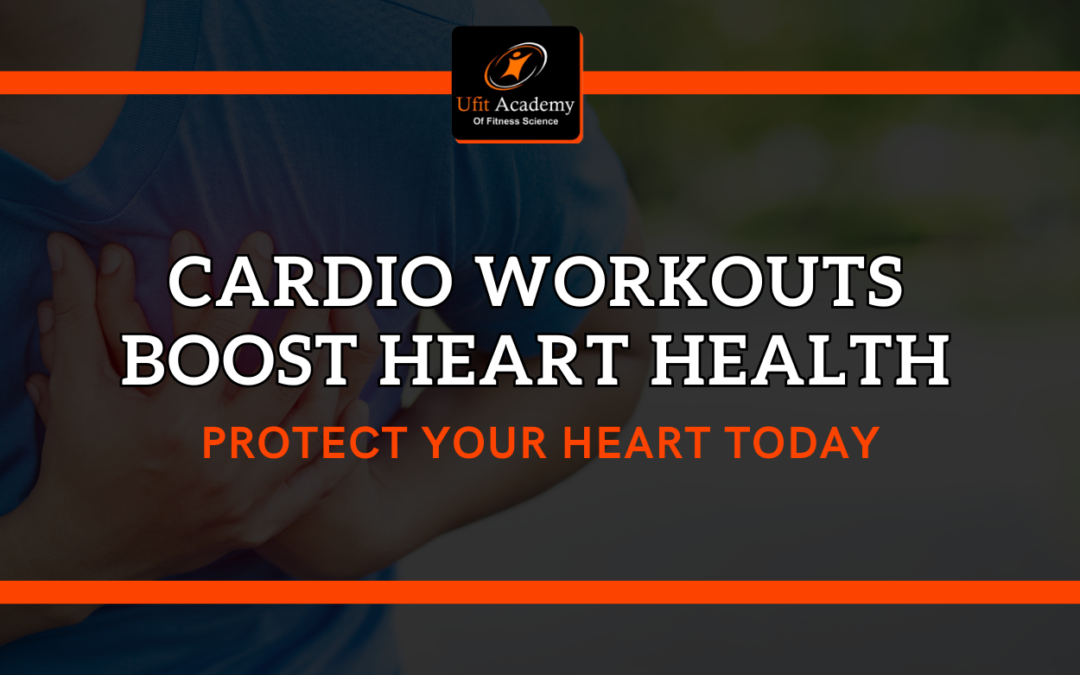Cardiovascular exercise, often referred to as cardio, is essential for maintaining a healthy heart, improving endurance, and boosting overall fitness. Incorporating effective cardio workouts into your fitness routine can have numerous health benefits, including reduced risk of heart disease, improved circulation, and increased energy levels. In this comprehensive guide, we’ll explore the importance of cardiovascular exercise, its impact on heart health, and a variety of effective cardio workouts to help you achieve your fitness goals.
Why Cardiovascular Exercise is Important for Heart Health
Cardiovascular exercise is any form of exercise that raises your heart rate and improves the efficiency of your cardiovascular system. Regular cardio workouts can help strengthen your heart muscle, improve blood circulation, and lower blood pressure. Additionally, cardio can help reduce cholesterol levels, improve lung function, and boost your mood and mental health.
Types of Cardiovascular Exercise
There are many different types of cardiovascular exercises, each offering unique benefits and catering to different fitness levels and preferences. Some popular forms of cardio include:
1. Running/Jogging: Running or jogging is a high-intensity cardio workout that can help improve endurance, burn calories, and strengthen muscles.
2. Cycling: Cycling, whether indoors on a stationary bike or outdoors, is a low-impact cardio workout that can improve leg strength and cardiovascular fitness.
3. Swimming: Swimming is a full-body workout that is gentle on the joints and can improve cardiovascular fitness, strength, and flexibility.
4. Jump Rope: Jumping rope is a high-intensity cardio workout that can improve coordination, agility, and cardiovascular fitness.
5. Dancing: Dancing is a fun and effective cardio workout that can improve cardiovascular fitness, coordination, and mood.
6. Walking: Walking is a low-impact cardio workout that can be done anywhere and is suitable for all fitness levels.
Effective Cardio Workouts for Boosting Heart Health
1. Interval Training: Interval training involves alternating between high-intensity bursts of exercise and periods of rest or low-intensity exercise. This type of workout can help improve cardiovascular fitness, burn calories, and boost metabolism. Example: 30 seconds of sprinting followed by 1 minute of walking, repeated for 20-30 minutes.
2. Circuit Training: Circuit training combines cardiovascular exercise with strength training by performing a series of exercises in a circuit with minimal rest in between. This type of workout can improve overall fitness and endurance. Example: Jumping jacks, push-ups, squats, lunges, and burpees, performed for 30-60 seconds each, repeated for 3-4 circuits.
3. Stair Climbing: Stair climbing is a high-intensity cardio workout that can improve leg strength, cardiovascular fitness, and calorie burning. This can be done on a staircase or using a stair-climbing machine.
4. Hiking: Hiking is a great way to get outdoors and enjoy nature while getting a good cardio workout. Hiking uphill or on uneven terrain can increase the intensity of the workout.
5. Rowing: Rowing is a full-body workout that engages the muscles of the arms, legs, and core, while also providing a great cardiovascular workout. This can be done on a rowing machine or in a boat on water.
6. Kickboxing: Kickboxing is a high-intensity cardio workout that combines martial arts techniques with aerobic exercise. It can improve cardiovascular fitness, agility, and coordination.
7. Cycling: Cycling, whether on a stationary bike or outdoors, is a great low-impact cardio workout that can improve cardiovascular fitness and leg strength.
Tips for Effective Cardio Workouts
1. Warm-up: Always start your cardio workout with a 5-10 minute warm-up to prepare your muscles and cardiovascular system for exercise.
2. Cool Down: Finish your workout with a 5-10 minute cool down to gradually lower your heart rate and prevent muscle soreness.
3. Stay Hydrated: Drink plenty of water before, during, and after your workout to stay hydrated and maintain optimal performance.
4. Listen to Your Body: Pay attention to how your body feels during exercise and adjust the intensity or duration as needed. If you experience any pain or discomfort, stop immediately and seek medical attention if necessary.
5. Consistency is Key: To see the benefits of cardiovascular exercise, it’s important to be consistent with your workouts. Aim for at least 150 minutes of moderate-intensity cardio per week, or 75 minutes of high-intensity cardio per week, along with muscle-strengthening exercises on two or more days per week.
In conclusion, cardiovascular exercise is crucial for maintaining a healthy heart, improving fitness, and enhancing overall well-being. By incorporating effective cardio workouts into your fitness routine and following these tips, you can boost your heart health, increase your endurance, and achieve your fitness goals. Remember to consult with a healthcare provider before starting any new exercise program, especially if you have any underlying health conditions

